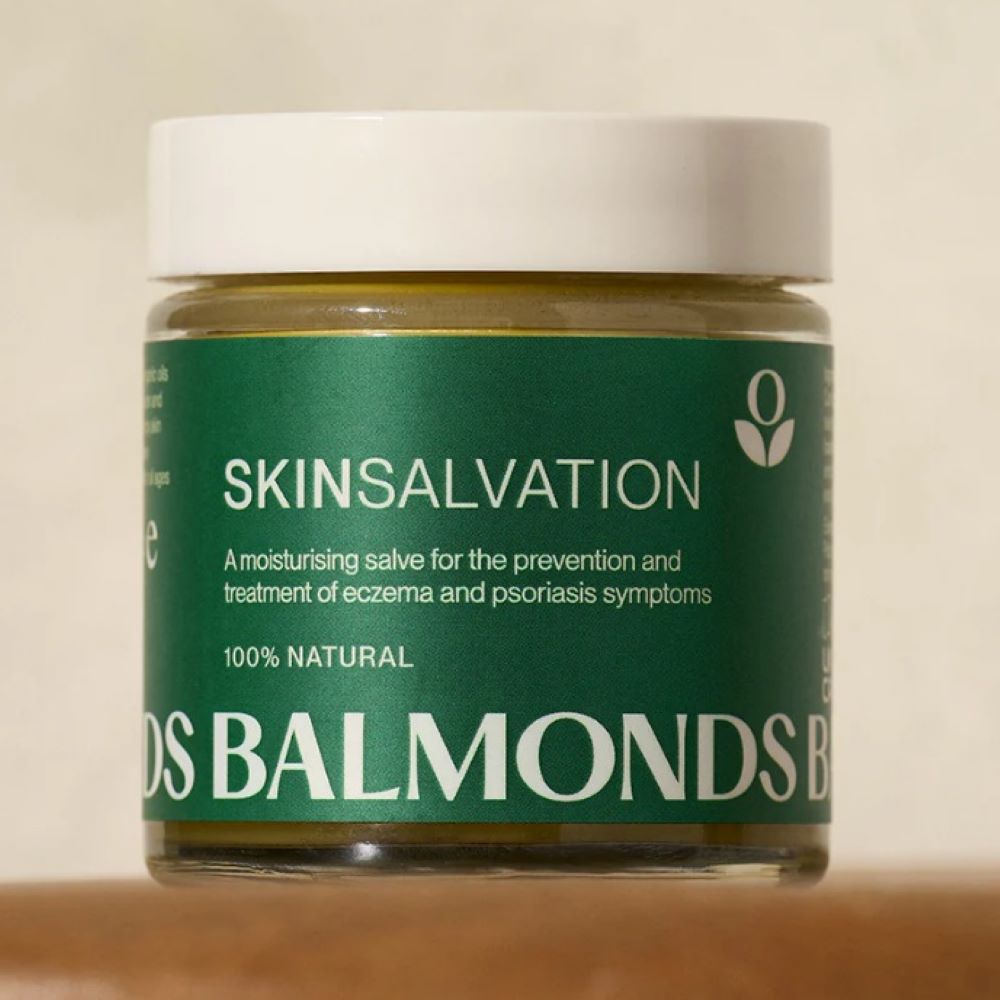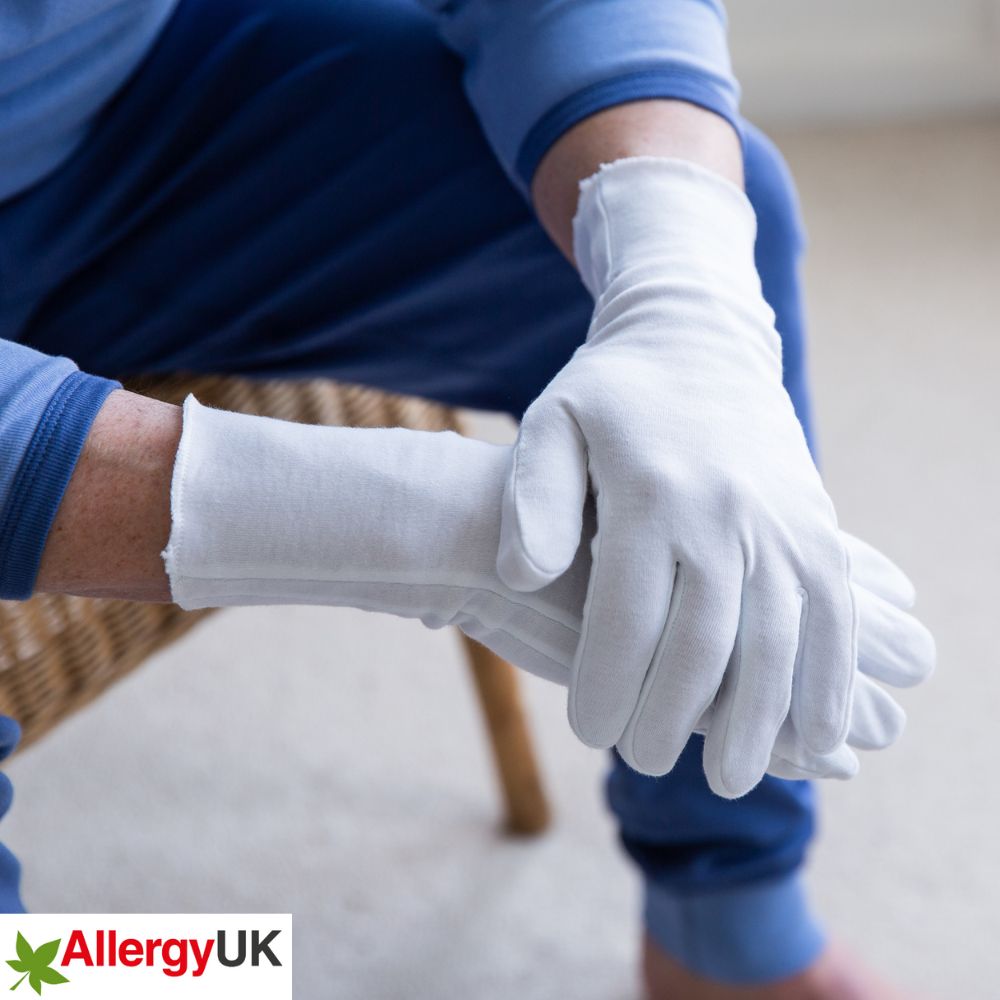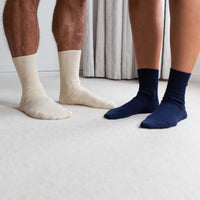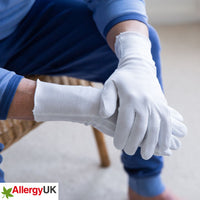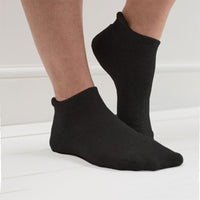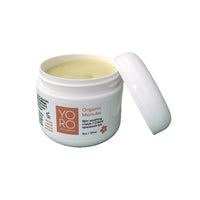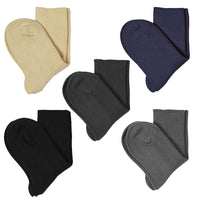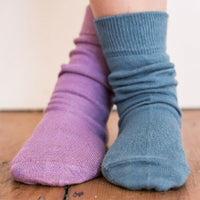
A Holistic Approach to Managing Eczema and Skin Conditions: Skincare, Haircare, Clothing, Nutrition, and More...
A Holistic Approach to Managing Eczema and Skin Conditions: Skincare, Haircare, Clothing, Nutrition, and More...
In this blog, we’ll explore practical and effective ways to manage eczema through a combination of targeted skincare, lifestyle adjustments and smart choices in everything from your clothing to your diet. Following a regime of holistic strategies can really improve your skin's health and help reduce flare-ups.
Skincare for Eczema: Gentle and Targeted Solutions
For those with eczema or other sensitive skin conditions, the first line of defense is choosing the right skincare.
An effective skincare routine should avoid triggers and prioritize hydration and protection, using ingredients that are nourishing without being harsh.
The most important first step is to avoid soaps, shower gels, bodywash or bubble bath in the shower or bath that contain chemicals like sodium lauryl sulfate - this is a known trigger but sadly you’ll find it in most commercial soaps / shampoos. Avoiding artificial fragrances, colouring and preservatives is also important, as these are common triggers for irritation.
Regular and plentiful use of emollients and moisturizers is then absolutely crucial to support the skin barrier, maintain moisture and protect the skin from environmental factors. You can be prescribed these by your GP or dermatologist or find them yourself.
Think too about going for natural unperfumed deodorants, make up, suncreams – basically anything that comes into contact with your skin as this could have an impact.
Everyone is different so there is no one-size-fits-all and trial and error are usually the best route to figure out what your skin needs and will tolerate. Which of course can be costly and time-consuming.
In fact, the Bristol based CAESAR organisation recently undertook a detailed study of Eczema Creams and actually found that there is no simple solution! Read more here)
Over the years we have tried and tested many natural products on ourselves and our family. Some of our favorites are in our skincare section. We particularly like the approach Balmonds take.

For further info, we also recommend reading...
Unlocking the Power of Water Free Skincare
National Eczema Society – Emollients Guide
What to do When Deodorants Bite Back
Haircare for Scalp Eczema – in fact for all Eczema!
Finding the right haircare is important not only for those suffering with scalp eczema but shampoo/conditioner often washes over the face, neck and body so can affect a much wider area. So, wherever you have eczema, it’s important to avoid harsh shampoos and conditioners that contain sulfates, fragrances, or alcohol as these can strip the scalp of its natural oils, leading to further dryness and discomfort and trigger flare ups on other areas of the body where it comes into contact. Instead, opt for moisturising, fragrance-free, natural products that nourish the skin without triggering flare-ups.
Olsson Scandinavia, for example, offers specially formulated products that cater to sensitive skin. Their products are fragrance-free and gentle, reducing the risk of irritation, while also containing soothing ingredients that calm inflammation and promote a healthy skin barrier (plus they are approved by Allergy UK).

The Right Clothing for Eczema: Choosing Fabrics Wisely
Clothing plays a significant role in managing eczema and other skin conditions. Particularly at nighttime when itching and scratching are irresistible, having specially designed garments to reduce itching, break the itch scratch cycle and help you sleep better can be a game changer. Our specialist Eczema Mitten T’s have integral mittens that do just that.
Certain fabrics can aggravate symptoms, while others can help keep the skin calm and comfortable. For individuals with sensitive skin, choosing breathable, non-irritating fabrics like cotton, bamboo, or silk is important. These materials are gentle on the skin and allow it to breathe, preventing the buildup of heat and sweat that can trigger itchiness.
Avoid synthetic fabrics such as polyester and nylon, which can trap heat and moisture against the skin, leading to irritation.
Additionally, consider washing clothes with a fragrance-free, hypoallergenic washing liquid or powder to prevent further irritation. Ideally wash clothing, especially nightwear, at 60 degrees to ensure all residual creams, skin flakes, blood and other potential allergen triggers like dust mites are removed effectively.
Our Cotton Comfort collection is 100% Organic Cotton, washable at 60 degrees and comes with innovative design features to break the itch scratch cycle so often associated with eczema.
You might also find these blogs useful
Why Are Natural Fabrics Good For Sensitive Skin and Eczema?
98% Say Clothing Helps manage Their Eczema
Could Your Laundry Habits be making Your Eczema Worse?

Nutrition and Eczema: Food Choices That Support Skin Health
Nutrition is another crucial aspect of managing eczema. A holistic approach to eczema involves considering the foods you eat and how they might impact your skin. Some studies suggest that certain foods may trigger eczema flare-ups, especially in individuals with sensitivities or allergies. Common triggers include dairy, eggs, soy and tomatoes although these vary from person to person.
Incorporating anti-inflammatory foods into your diet can support overall skin health and potentially reduce flare-ups. Foods rich in omega-3 fatty acids, such as salmon, flaxseeds, and walnuts, can help reduce inflammation. Similarly, a diet rich in antioxidants (found in fruits and vegetables like berries, spinach, and sweet potatoes) can protect the skin from oxidative stress, which can worsen eczema.
Hydration is another key component. Drinking enough water each day helps keep the skin hydrated from within, complementing the use of those topical moisturisers and emollients.
For more information:
Let Nutrition Lend a Helping Hand
Bedding and Eczema: Creating a Skin-Friendly Sleep Environment
Your (lack of) sleep can have a significant impact on your mental health and your eczema. Since we spend about a third of our lives in bed, it’s essential to create a comfortable, eczema-friendly sleeping space. Bedding made from breathable, natural fibres like cotton or bamboo can help keep your skin cool and prevent irritation. As will nightwear designed to alleviate itching, protect from scratching and help you sleep better.
Dust mites and bacteria are another potential irritant for those with eczema, so it’s wise to use hypoallergenic bedding and wash it regularly at 60 degrees (as this temperature kills dust mites). As with clothing, using non-biological washing powder or liquid and avoid fabric softeners as these coat fabric and trigger irritation. By creating a soothing sleep environment, you can ensure that your skin gets the rest and recovery it needs.
Here's a great blog for understanding how the right bedding can make all the difference...
Guide to getting a Better Night's Sleep
Stress Reduction and Its Role in Managing Eczema
While skincare and lifestyle choices are important, one of the often-overlooked factors in eczema management is stress. Many people find that stress can exacerbate their symptoms, leading to flare-ups that are difficult to control. Stress triggers the release of cortisol, a hormone that can weaken the skin’s barrier function and cause inflammation, worsening eczema.
Incorporating stress-reduction techniques into your daily routine can have a profound impact on your skin’s health. Mindfulness practices like meditation, yoga, and deep breathing exercises can help lower stress levels. Regular physical activity also plays a key role in stress management, releasing endorphins that improve mood and reduce tension.
Additionally, ensuring you get adequate sleep each night is critical. Lack of sleep can not only exacerbate stress but also make it harder for your skin to repair itself, leading to more frequent flare-ups.
Try revisiting your pre bed routine...
A relaxing bath (using something like Westlab’s Skin Repair Bath Salts reducing (or cutting out) screen time for at least an hour before bed and sipping a relaxing nighttime herbal tea can all help.
At-Home Eczema Treatment Tools: Quick Relief for Itchy Skin
In addition to skincare, lifestyle changes, and stress management, having tools on hand that offer quick relief can make a big difference in managing eczema. Cosi Care, for example, offers innovative, medically certified products designed for instant itch relief.
The Scratch Star and Scratch Attack roller are ergonomic tools that fit comfortably in the smallest hands, making them ideal for use on children. These at-home solutions offer a natural alternative to traditional medicine and can be used alongside moisturisers and other skin-soothing products. Simply storing them in the fridge provides an additional cooling effect, perfect for calming itchy, irritated skin.
Keep a Journal – Track Your Triggers
Keeping a journal can be incredibly helpful in identifying patterns and triggers that may worsen your eczema. Take note of what you eat and drink, and observe how different weather conditions or seasonal changes, like high pollen counts in summer or central heating in winter, affect your skin. Pay attention to the types of fabrics you wear and any life events, such as exams, starting a new job, or moving house. Over time, this will help you build a clearer picture of what exacerbates your condition and how to best avoid or minimise those triggers.
Last But Not Least – Build a Relationship with Your GP
It's always a good idea to stay connected with your GP, especially if your symptoms become difficult to manage. Even if your condition isn't severe, your GP can prescribe suitable emollients or refer you to a dermatologist for more specialised support if needed. Keep in mind that NHS waiting times can be long, so while seeking medical advice is important, it’s equally essential to focus on managing your condition at home with proactive, holistic strategies.
Conclusion: A Holistic Approach to Eczema Management
Eczema and other skin conditions are complex, often requiring more than just topical treatments for effective management. By embracing a holistic approach that considers skincare, haircare, clothing, nutrition, bedding, and stress reduction, you can create a supportive environment for your skin to heal and thrive.
Taking a holistic approach doesn’t just treat eczema; it empowers you to support your skin in every aspect of your daily life, from the products you use to the habits you develop. By understanding and implementing these strategies, you’re taking steps toward long-term relief and better skin health.

